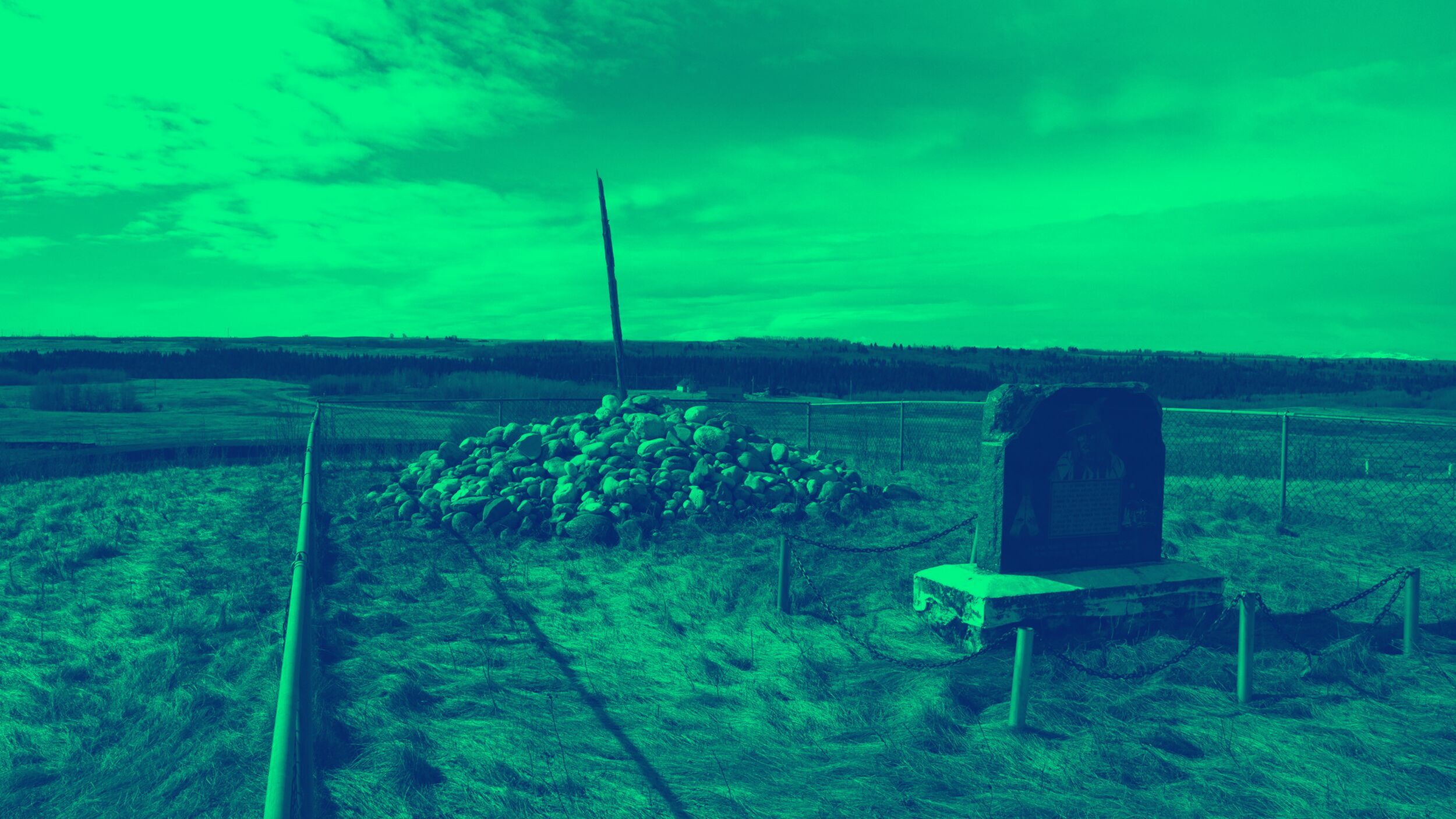
Reconciliation, Treaty 7 and Calgary’s next city council
“The greatest gift we can give our children is to heal ourselves.”
After weeks of covering election forums, it was nothing short of restorative to step into a conference room where no one was going on about “finding efficiencies” and “common sense.”
Instead, the talk at the Carriage House Inn on Thursday was about Treaty 7, reconciliation and the evolving relationship between Indigenous and non-Indigenous people in and around Calgary.
“As adults, the greatest gift we can give our children is to heal ourselves,” said renowned actor Michelle Thrush, who was a panelist at the conference together with Eugene Brave Rock of Wonder Woman fame.
Thrush, who is co-director of Making Treaty 7, challenged the non-Indigenous people in the room to do their part in educating themselves about their Indigenous neighbours—and then acting on that education.
Read more: It’s Not My Job to Teach You about Indigenous People (The Walrus)
“It’s your responsibility to deal with that you’ve been given,” Thrush said. “It doesn’t help anybody for white people to feel guilty.”
With Calgary on the cusp of choosing its next city council, the municipal election wasn’t far from mind at the reconciliation-themed conference, which was organized by Vibrant Communities Calgary.
Indigenous issues have only been mentioned in passing on the campaign trail, when they’ve been mentioned at all (with the notable exception of Ward 10, where Michelle Robinson has put reconciliation front and centre).
It’s an unfortunate omission. Some 30,000 Indigenous people live in Calgary, which was built on Blackfoot land. The city also abuts the Tsuut’ina Nation reserve in the southwest.
Hal Eagletail, cultural communications director for the Tsuut’ina Nation, said there has been a “beautiful evolution” in the relationship between Calgary and the Nation, and that it will be important for Calgary’s next city council to build on that progress.
“We have a lot of activity with the ring road — developments and job opportunities that exist with that,” said Eagletail. “So we want to have that continuity with the city council. And if there’s a new mayor, then we would certainly love to pick up where we left off with the current mayor.”
Although more than two years have passed since the Truth and Reconciliation Commission released its report and 94 calls to action, conference participants agreed that we’re a long way from reconciliation, still working on just recognizing the truth of the past.
“I think we’re on a good path,” said Christy Morgan, a Calgarian and member of the Bonaparte band of the Shuswap Nation. “I think we’re at the very beginning point of this journey.”

Morgan’s words echo the White Goose Flying Report, the local response to the final Truth and Reconciliation Commission report.
“The work of reconciliation is just beginning,” says the 2016 report, which is named for Jack White Goose Flying, a 17-year-old from the Piikani Nation who died of tuberculosis while attending the only residential school in Calgary.
Jack’s story is important on many levels. It is part of a shared history between the Indigenous people of Treaty 7 (where several nations involved have been signatories in treaty) and non-Indigenous Calgarians. Unfortunately it is not a history many Calgarians know about.
—White Goose Flying Report, created by the Calgary Aboriginal Urban Affairs Committee
Morgan called on Calgary candidates to articulate how they will work with Indigenous communities.
“There’s a lot of work that’s been done,” Morgan said. “However, I’d like to see what each individual candidate’s viewpoint and stance is on next steps for the city of Calgary as a municipality.”
Alberta had the most residential schools of any province, including 10 in the Calgary area.
“We’re all part of Treaty 7, and we need to understand that history to understand what’s happening currently,” said Pamela Beebe, Indigenous strategist for Vibrant Communities Calgary.
The White Goose Flying report says the most significant investment the city can make is training city staff on Indigenous issues and anti-racism.
Beebe said new city councillors will likewise need to learn.
“I think the first thing that anybody working for the city needs to do is to meet with an elder or have an opportunity to sit down with people who are Indigenous,” said Beebe. “And understand where they came from, what their history is, what impact the Truth and Reconciliation Commission had on their lives.”
Support independent Calgary journalism!
Sign Me Up!The Sprawl connects Calgarians with their city through in-depth, curiosity-driven journalism. But we can't do it alone. If you value our work, support The Sprawl so we can keep digging into municipal issues in Calgary!




